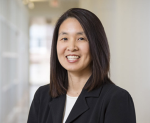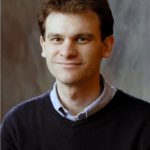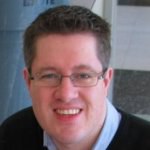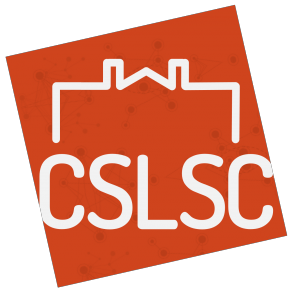How will Technology Reshape our Democracy?
This panel will examine questions relating to the effects of technologies on political discourse and policy, including but not limited to social media as a means of information (and disinformation) spread in a network, measures of fairness and computational tools for redistricting, and law, privacy, and security in the digital age. Join us for an engaging discussion and feel open to raise provocative questions.
Speakers
Wendy Cho
 Wendy K. Tam Cho is Professor in the Departments of Political Science, Statistics, Mathematics, Asian American Studies, and the College of Law, Senior Research Scientist at the National Center for Supercomputing Applications, a Guggenheim Fellow (2015-2016), Faculty in the Illinois Informatics Institute, and Affiliate of the Cline Center for Democracy, the CyberGIS Center for Advanced Digital and Spatial Studies, and the Computational Science and Engineering Program at the University of Illinois at Urbana-Champaign.
Wendy K. Tam Cho is Professor in the Departments of Political Science, Statistics, Mathematics, Asian American Studies, and the College of Law, Senior Research Scientist at the National Center for Supercomputing Applications, a Guggenheim Fellow (2015-2016), Faculty in the Illinois Informatics Institute, and Affiliate of the Cline Center for Democracy, the CyberGIS Center for Advanced Digital and Spatial Studies, and the Computational Science and Engineering Program at the University of Illinois at Urbana-Champaign.
Cédric Langbort
 Cédric Langbort is an Associate Professor of Aerospace Engineering at the University of Illinois at Urbana–Champaign (UIUC), where he is also affiliated with the Decision & Control Group at the Coordinated Science Lab (CSL), and the Information Trust Institute. Prior to joining UIUC in 2006, he studied at the Ecole Nationale Supérieure de l’Aéronautique et de l’Espace- Supaero in Toulouse (France), the Institut Non-Linéaire in Nice (France), and Cornell University, from which he received the Ph.D. in Theoretical & Applied Mechanics in January 2005. He also spent a year and a half as a postdoctoral scholar in the Center for the Mathematics of Information at Caltech.
Cédric Langbort is an Associate Professor of Aerospace Engineering at the University of Illinois at Urbana–Champaign (UIUC), where he is also affiliated with the Decision & Control Group at the Coordinated Science Lab (CSL), and the Information Trust Institute. Prior to joining UIUC in 2006, he studied at the Ecole Nationale Supérieure de l’Aéronautique et de l’Espace- Supaero in Toulouse (France), the Institut Non-Linéaire in Nice (France), and Cornell University, from which he received the Ph.D. in Theoretical & Applied Mechanics in January 2005. He also spent a year and a half as a postdoctoral scholar in the Center for the Mathematics of Information at Caltech.
Alberto Speranzon
 Alberto Speranzon received the Laurea degree in computer engineering from University of Padova, Italy in 2000, the Tech. Lic. and Ph.D. in automatic control from the School of Electrical Engineering, Royal Institute of Technology, Stockholm, Sweden in 2004 and 2006, respectively. From 2008 until 2015 he was a Research Scientist at United Technologies Research Center (UTRC), in East Harford, CT, USA. At UTRC, Alberto served as project manager and principal investigator for DARPA’s ASPN program on novel methods for distributed localization of multiple vehicles in GPS degraded/denied environments combining adaptive filtering, graph theoretical and algebraic topological methods. Since 2015, he has worked as a research scientist at Honeywell Aerospace.
Alberto Speranzon received the Laurea degree in computer engineering from University of Padova, Italy in 2000, the Tech. Lic. and Ph.D. in automatic control from the School of Electrical Engineering, Royal Institute of Technology, Stockholm, Sweden in 2004 and 2006, respectively. From 2008 until 2015 he was a Research Scientist at United Technologies Research Center (UTRC), in East Harford, CT, USA. At UTRC, Alberto served as project manager and principal investigator for DARPA’s ASPN program on novel methods for distributed localization of multiple vehicles in GPS degraded/denied environments combining adaptive filtering, graph theoretical and algebraic topological methods. Since 2015, he has worked as a research scientist at Honeywell Aerospace.
